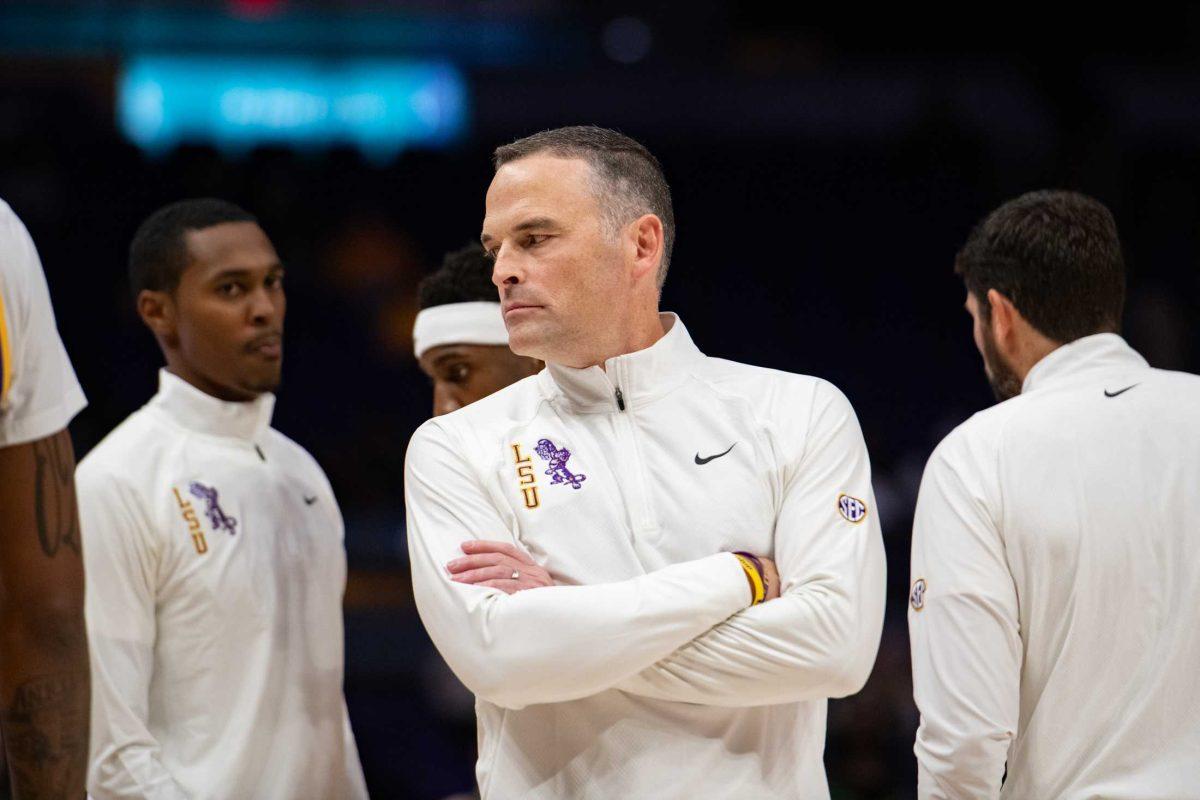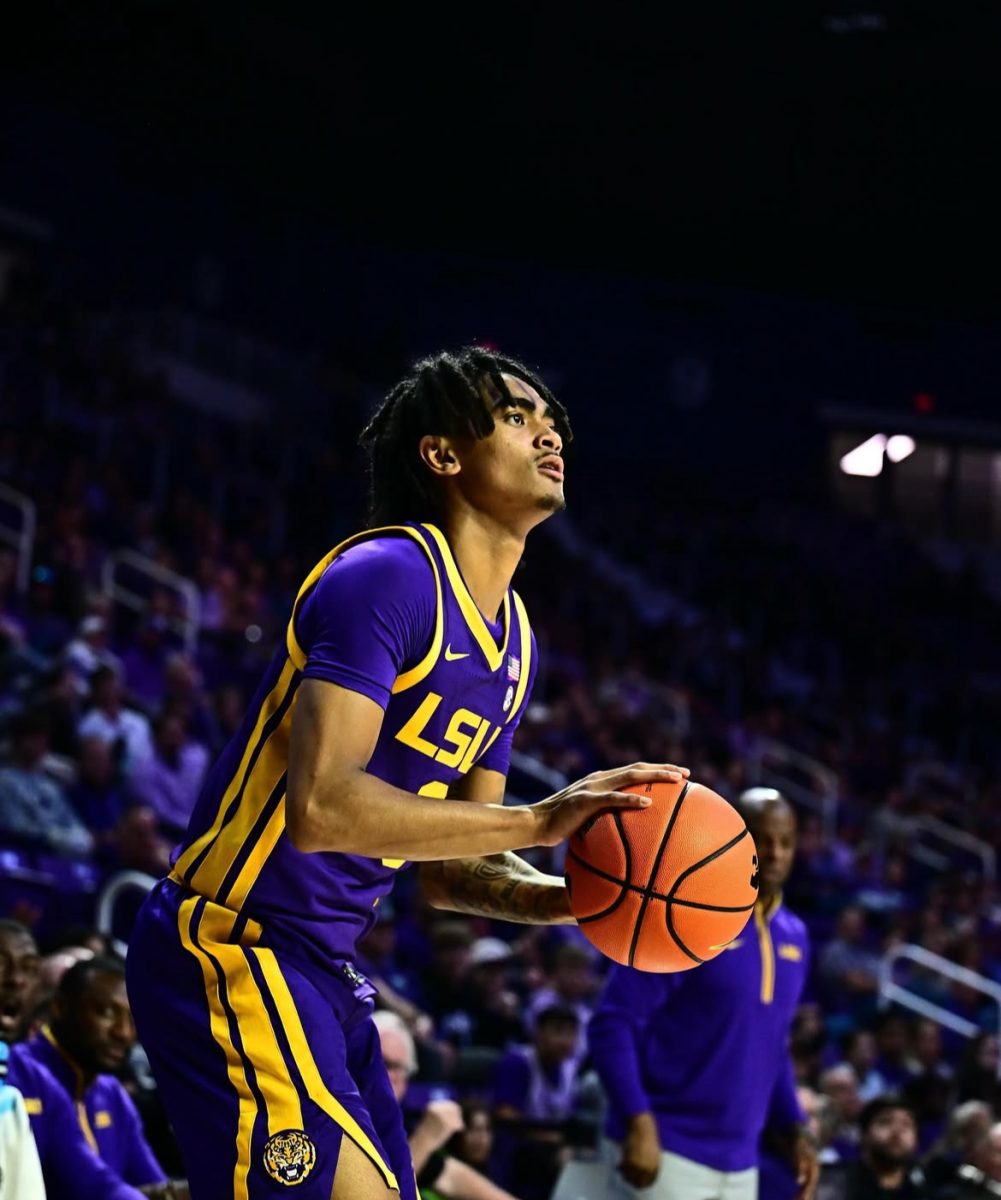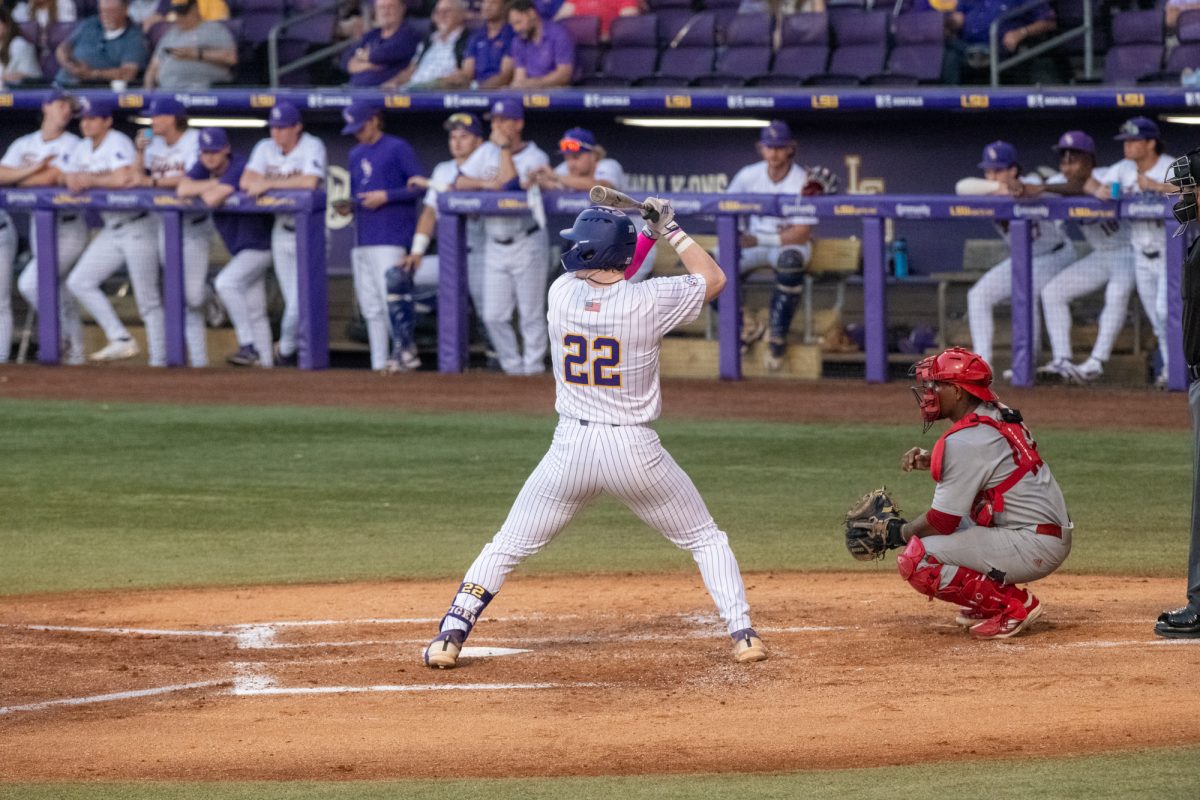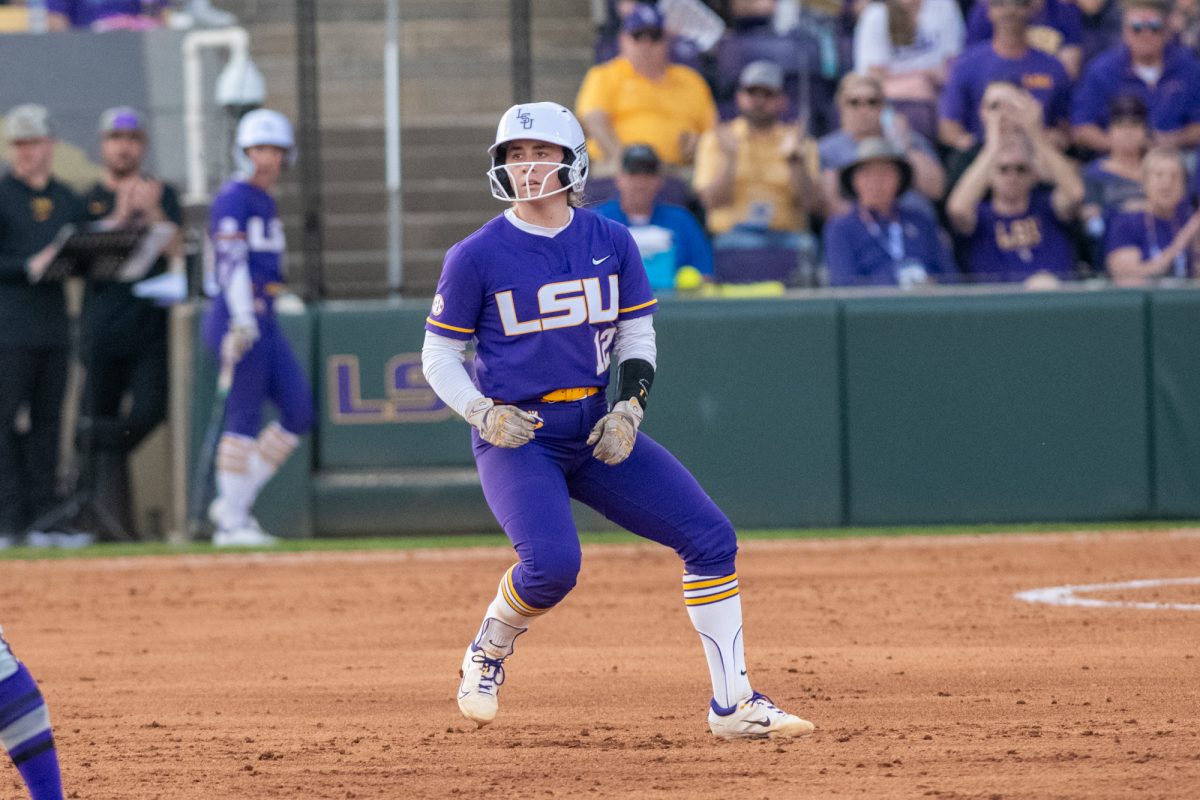LSU men’s basketball announced it has signed its first transfer of the offseason in former Kansas State guard Cam Carter on Friday.
Carter will have one year of eligibility left as a senior for the Tigers. This past year, he averaged 14.6 points, 5 rebounds, 2.6 assists and 1.4 steals per game.
Carter has started every game over the last two years with the Wildcats. In his first year, he was a role player as Kansas State made a surprise run to the Elite Eight.
This past year, he took a leap as an offensive centerpiece for Kansas State, finishing second on the team in points while taking the most shots of anyone on the team.
Carter also offers solid size and above-average rebounding ability at the guard spot. He’s also impactful on the defensive end.
He made 30.9% of his 3-pointers this season on 5.6 attempts per game. His efficiency in that area is something that can stand to improve, as he’s been a streaky shooter.
Carter had five 20-point games this season for Kansas State, including a career-high 28 against Miami. Another one of those games came in a December matchup against LSU, where Carter scored 21 points to top the Tigers.
The addition of Carter will be important for an LSU team that is looking to replace a lot of offensive production, particularly at the guard spot, where Jordan Wright and Trae Hannibal have graduated, and Jalen Cook’s future is in question.
Carter will join a back court that so far will include sophomore Mike Williams III, senior Carlos Stewart and incoming freshman Curtis Givens III.
Before transferring to Kansas State, Carter spent his freshman year as a reserve player with Mississippi State after choosing the Bulldogs as a three-star recruit out of powerhouse Oak Hill Academy.
Carter grew up in Donaldsonville, Louisiana, continuing the recent trend of LSU bringing back local products in the transfer portal as it did last offseason.
Kansas State couldn’t replicate the success of its 2022-23 season this year, as it finished with a 19-15 record and an 8-10 record in the Big 12. However, the Wildcats still qualified for the NIT, where they lost in the first round to Iowa.












